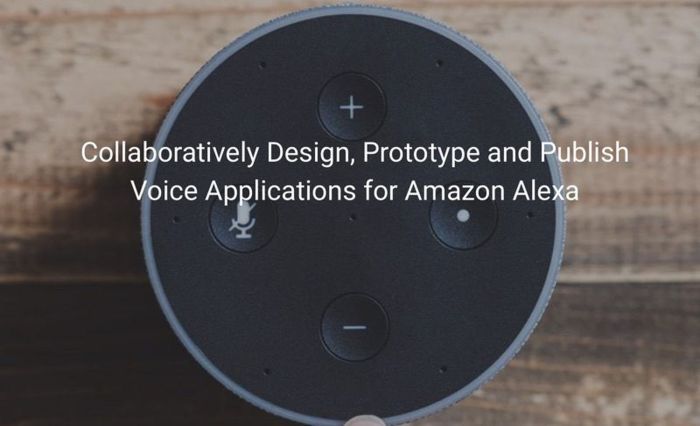Apple acquire voice assistant pullstring – Apple acquires voice assistant Pullstring: A move that ripples through the tech world, shaking up the already competitive voice assistant market. This acquisition isn’t just another corporate buy-out; it’s a strategic power play, hinting at Apple’s ambitious plans to further dominate the AI landscape. The whispers of enhanced Siri capabilities and innovative new product features are already buzzing amongst tech enthusiasts. But what exactly does Pullstring bring to the table, and how will this impact you, the user?
Pullstring’s unique technology focuses on [insert Pullstring’s key tech feature here, e.g., natural language processing or contextual understanding]. This sets it apart from competitors like Google Assistant and Amazon Alexa, promising a more intuitive and personalized user experience. Apple’s history of strategic acquisitions, like Beats and Shazam, suggests a pattern of integrating cutting-edge tech seamlessly into its ecosystem. The integration of Pullstring’s technology could potentially revolutionize how we interact with our Apple devices, leading to exciting new possibilities for smart home integration, accessibility features, and more.
Ethical and Privacy Considerations: Apple Acquire Voice Assistant Pullstring
Apple’s acquisition of Pullstring, a company specializing in conversational AI, raises significant ethical and privacy concerns. The integration of Pullstring’s technology into Apple’s already vast ecosystem necessitates a careful examination of how user data is collected, processed, and protected. The potential for misuse, bias, and unforeseen consequences demands proactive measures to safeguard user rights and maintain public trust.
Integrating Pullstring’s advanced voice assistant capabilities into Apple products significantly expands the amount of data Apple collects. This data includes not only voice commands but also contextual information like location, app usage, and potentially even inferred personal details based on conversational content. This raises concerns about the potential for unauthorized access, data breaches, and the potential for this information to be used for targeted advertising or even surveillance. The inherent trust users place in Apple’s brand must be met with robust security measures and transparent data handling practices.
Data Security and User Privacy, Apple acquire voice assistant pullstring
Protecting user privacy and data security is paramount. Apple must implement stringent measures to prevent unauthorized access to user data collected through Pullstring’s technology. This requires a multi-layered approach encompassing secure data storage, encryption during transmission and at rest, and rigorous access control policies. Furthermore, Apple needs to provide users with clear and concise information about what data is being collected, how it’s being used, and what safeguards are in place to protect it. This transparency builds trust and empowers users to make informed decisions about their data.
- Implement end-to-end encryption for all voice data collected and processed by Pullstring’s technology.
- Develop a comprehensive data anonymization strategy to minimize the risk of identifying individual users.
- Establish a robust data breach response plan to mitigate the impact of any potential security incidents.
- Provide users with granular control over their data, allowing them to choose what data is collected and how it is used.
- Conduct regular security audits and penetration testing to identify and address vulnerabilities.
Addressing Bias in Voice Recognition Technology
Voice recognition technology is not immune to biases present in the data used to train it. These biases can manifest in various ways, from misinterpreting accents and dialects to exhibiting prejudice based on gender, race, or other demographic factors. Pullstring’s technology, like any other AI system, may inherit and amplify such biases. Apple has a responsibility to actively identify and mitigate these biases to ensure fairness and equitable treatment for all users. Failure to do so could lead to discriminatory outcomes and erode public trust.
Apple’s responsibility extends to actively auditing Pullstring’s data sets for potential biases and implementing corrective measures during the integration process. This might involve retraining the AI model with more diverse and representative datasets, employing techniques to detect and correct biases in real-time, and establishing mechanisms for user feedback to identify and address instances of unfair or discriminatory behavior. Transparency in these efforts is crucial to demonstrating Apple’s commitment to fairness and inclusivity.
Apple’s acquisition of Pullstring is more than just a headline; it’s a bold statement about the future of voice technology. By acquiring this innovative company, Apple isn’t just buying a product; it’s investing in a future where seamless voice interaction is the norm. The implications are vast, ranging from improved Siri functionality to entirely new product lines. Whether this translates into a genuinely superior user experience remains to be seen, but one thing is clear: the voice assistant landscape has just gotten a whole lot more interesting. The game has changed, and Apple is playing to win.
 Informatif Berita Informatif Terbaru
Informatif Berita Informatif Terbaru
